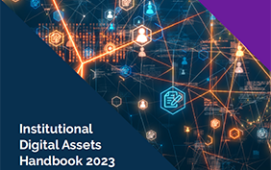
Financial institutions have been handed a golden opportunity to grow their business and add value for their customers from an unlikely source – ESG regulators.
While banks and investors are under pressure to comply with a slew of new sustainability rules, the process is providing them with a treasure trove of data that can be used to boost every part of their operations.
From portfolio and risk management to client communications, marketing and technological innovation, the data they must collect to meet their regulatory obligations is providing institutions with once-in-a-generation opportunities.The benefits are so great, in fact, that the biggest risk to firms that breach those responsibilities comes not from regulatory fines but from divestment by disgruntled clients, according to Adrian Whelan, senior vice president and head of regulatory intelligence for investor services at private bank Brown Brothers Harriman.
A company that has its ESG data reporting capabilities in order is one that also has the raw materials and tools to increase profitability, reduce risks and enrich its value proposition, the panel heard. These are the companies that investors will want to engage. As such, regulatory censure won’t be the stick that drives compliance, Whelan told A-Team Group’s latest ESG Insight webinar; instead, client demand for the investment products and capabilities that compliance data provides will be a stronger pull.
“ESG is everywhere” and “unavoidable, so it should be an integrated part” of all institutions’ business strategies, Whelan told the webinar, which was entitled “How to develop a reporting framework for ESG disclosure regulation”.
Alex Merola, executive director, software solutions commercial strategy for sustainability and private markets at S&P Global Market Intelligence agreed, arguing that ESG needed to be understood holistically. Only then could it provide long-term value beyond satisfying regulators’ demands for data disclosure.
Bright Present, Brighter Future
The comments encapsulated the largely optimistic view of the panel, which agreed that banks and other institutions were doing a good job of meeting regulatory and client expectations.
While operational and perception challenges remain – gaps in the data record and anti-ESG pushback, for instance – there is a lot that institutions are getting right, they said.
Michelle Auger, former sustainability strategy director at Wells Fargo bank, argued that data and technology teams were helping tremendously to drive the race to take advantage of ESG data. Auger characterised them as more than just enablers of that change. Rather, she said, they are “key business partners” in the ESG journey.
She cautioned, however, that the data success story could only continue if institutions adapted to changes within the business and technology landscape. One of the biggest challenges they would face is the ingestion of the huge wave of data that’s expected to be generated by the Corporate Sustainability Reporting Directive (CSRD) in the EU. That will see an estimated 50,000 companies make their first disclosures early next year.
Not only must banks’ systems be primed to manage such an influx of information, but they should also stand ready to aid corporates that struggle to find and report the right data, the panel agreed.
Standardising the Standards
For most companies, this will be the first time they will be expected to gather and disclose ESG data. Auger said she has every sympathy with them as they try to find the right reporting methodology at a time when there is a plethora of competing standards for them to follow. For such companies, there just “aren’t enough hours in the day” to meet all standards, she said.
Panel members also agreed that the ESG project had been unfairly criticised by some parts of the political establishment. Critics have focused on greenwashing to justify attacks on what they have variously described as “woke capitalism” and a politically motivated belief system. Instead, said Whelan, it’s none of that: ESG is a science- and fact-based strategy, and this is what regulatory reporting aims to demonstrate, he said.
By creating structures that result in companies disclosing data on their ESG performance, reporting will lead to a reduction in greenwashing, especially as disclosure standards coalesce. That will include making provisions to meet new regulatory demands that data be assured by third parties – a practice that even companies with a long-standing record of reporting their ESG record will find unfamiliar.
Over time, greenwashing will become a thing of the past. But for now, the panel urged institutions to invest in their systems and their people to ensure they have the right technology and talent in place so that they are not left behind in the race to harness the many benefits that ESG data can offer.
Subscribe to our newsletter





